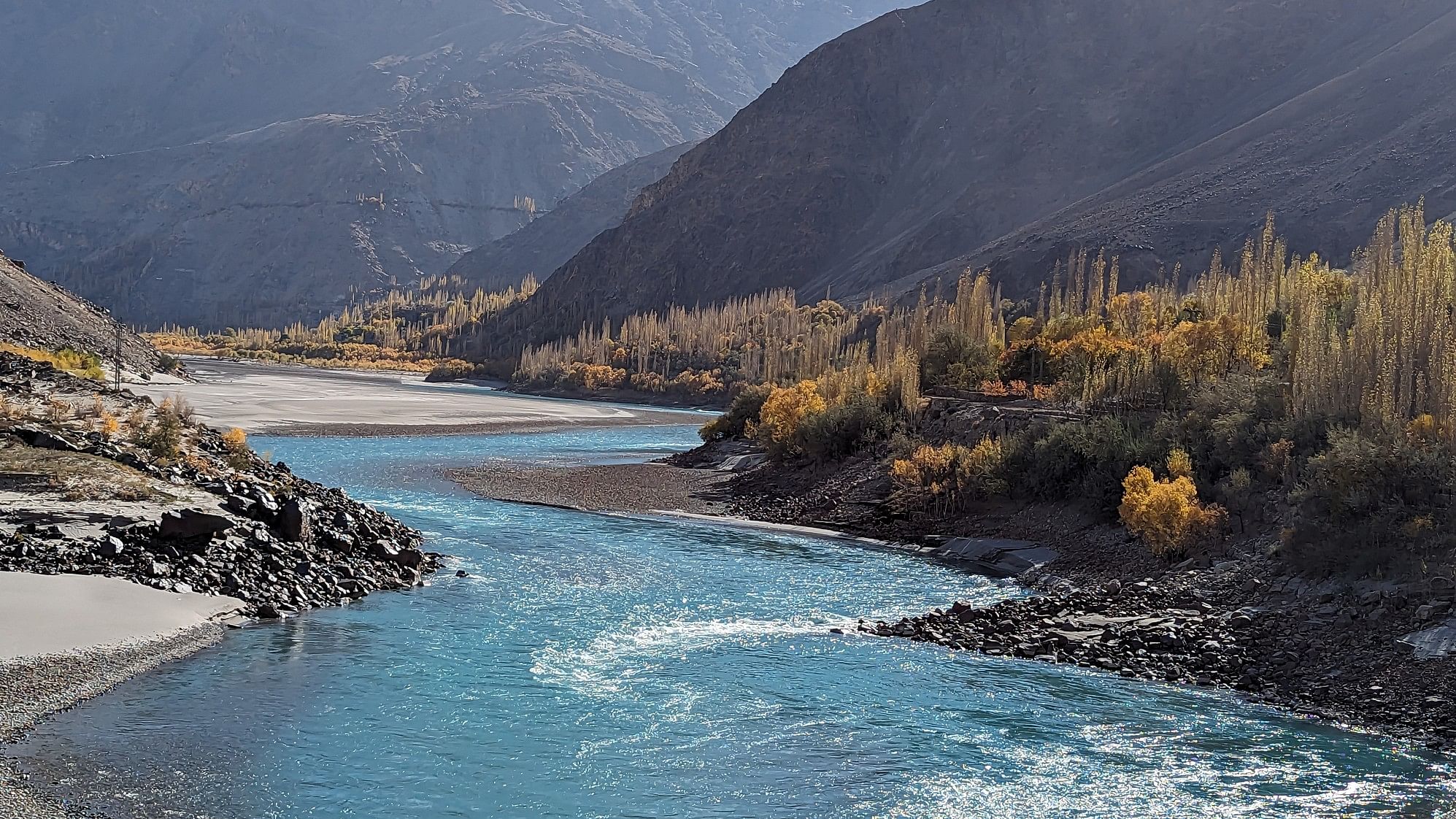
An image of the Indus River.
Credit: iStock Photo
New Delhi: India has served another notice to Pakistan seeking a review and modification of the Indus Water Treaty (IWT), although its first notice issued in January 2023 had not elicited a positive response from the neighbouring country.
New Delhi on August 30 served a second notice to Islamabad seeking changes in the IWT, which had been inked by the two neighbouring nations in 1960 for sharing of water of a cross-border river system. India reiterated to Pakistan its demand for changes in the IWT according to Article XII (3) of the treaty itself, a source in New Delhi said.
Pakistan had dismissed India’s first notice for modification of the treaty as “vague” and showed little interest in the past one-and-a-half-year to renegotiate the pact.
New Delhi in its latest notice to Islamabad highlighted fundamental and unforeseen changes in circumstances that required a reassessment of obligations under various articles of the treaty. It cited a change in population demographics, environmental issues, and the need to accelerate the development of clean energy, added the source.
The notice also has a reference to Pakistan’s persistent export of terror to India.
The source in New Delhi said that India had been steadfastly adhering to the IWT and had been a responsible partner of Pakistan in implementing the treaty in letter and spirit. However, added the source, the provisions of the treaty had been breached and its implementation had been adversely affected due to intransigence of Pakistan, leaving India with no other option except to seek changes in it.
The IWT had been signed by then Prime Minister Jawaharlal Nehru and his then counterpart, President Ayub Khan, on September 19, 1960.
The treaty survived several flashpoints in the perpetual conflict between the two nations, including the wars of 1965 and 1971 as well as the Kargil Conflict of 1999.
The treaty had been inked after nine years of negotiations facilitated by the World Bank, which was one of its signatories and which continued to play a role in keeping the process of settling disputes on track.
Pakistan had in 2015 requested for appointment of a Neutral Expert to examine its technical objections to India’s Kishenganga and Ratle Hydro Electric Projects (HEPs). It had unilaterally retracted the request and proposed that a Court of Arbitration should adjudicate on its objections. New Delhi had perceived the unilateral action by Islamabad as a contravention of the graded mechanism of dispute settlement envisaged by Article IX of the IWT. India had responded to Pakistan’s proposal for setting up a Court of Arbitration by making a separate request for the matter to be referred to a Neutral Expert.
New Delhi had conveyed to Islamabad and the World Bank that the initiation of the two simultaneous processes on the same questions and the potential of their inconsistent or contradictory outcomes would create an unprecedented and legally untenable situation, which would risk endangering IWT itself. The World Bank had acknowledged this itself in 2016, taken a decision to “pause” the initiation of two parallel processes, and requested India and Pakistan to seek an amicable way out.
Pakistan had refused to discuss the issue with India during the five meetings of the Permanent Indus Commissioners from 2017 to 2022.
The World Bank had acted on both the requests and in October 2022 appointed Michel Lino as the Neutral Expert and Sean Murphy as the Chairman of the Court of Arbitration.
New Delhi is of the view that such parallel consideration of the same issues is not covered under any provision of IWT. Faced with such violation of IWT provisions, India had been compelled to issue notice to Pakistan, seeking modification of the treaty, in January 2023.
The notification issued by India required Pakistan to come forward for intergovernmental negotiations within 90 days to rectify the breach of the IWT. This process would also update IWT to incorporate the lessons learned over the last 62 years.
The IWT had granted control over the three “eastern rivers” of the Indus River System – Beas, Ravi, and Sutlej – with an average annual flow of 33 million acre-feet (MAF) to India, while control over the three “western rivers” – Indus, Chenab, and Jhelum – with an average annual flow of 136 MAF had been given to Pakistan.
The treaty had allowed India to construct run-of-the-river hydroelectric projects on western rivers as well as to build a total storage capacity of 3.6 MAF water – 1.25 for general storage, 1.6 MAF for generation of hydroelectricity, and 0.75 MAF for flood control. India, however, had not yet built any storage on the western rivers so far.
India at present irrigates only 0.792 million acres of land, although the IWT allows it to do so over an area of 1.34 million acres with water from western rivers.
Though India has the absolute right to use the water of the three eastern rivers, it has not yet built infrastructure to fully utilize its entitlement. About two MAFs of water from the eastern rivers are currently flowing from India to Pakistan.
